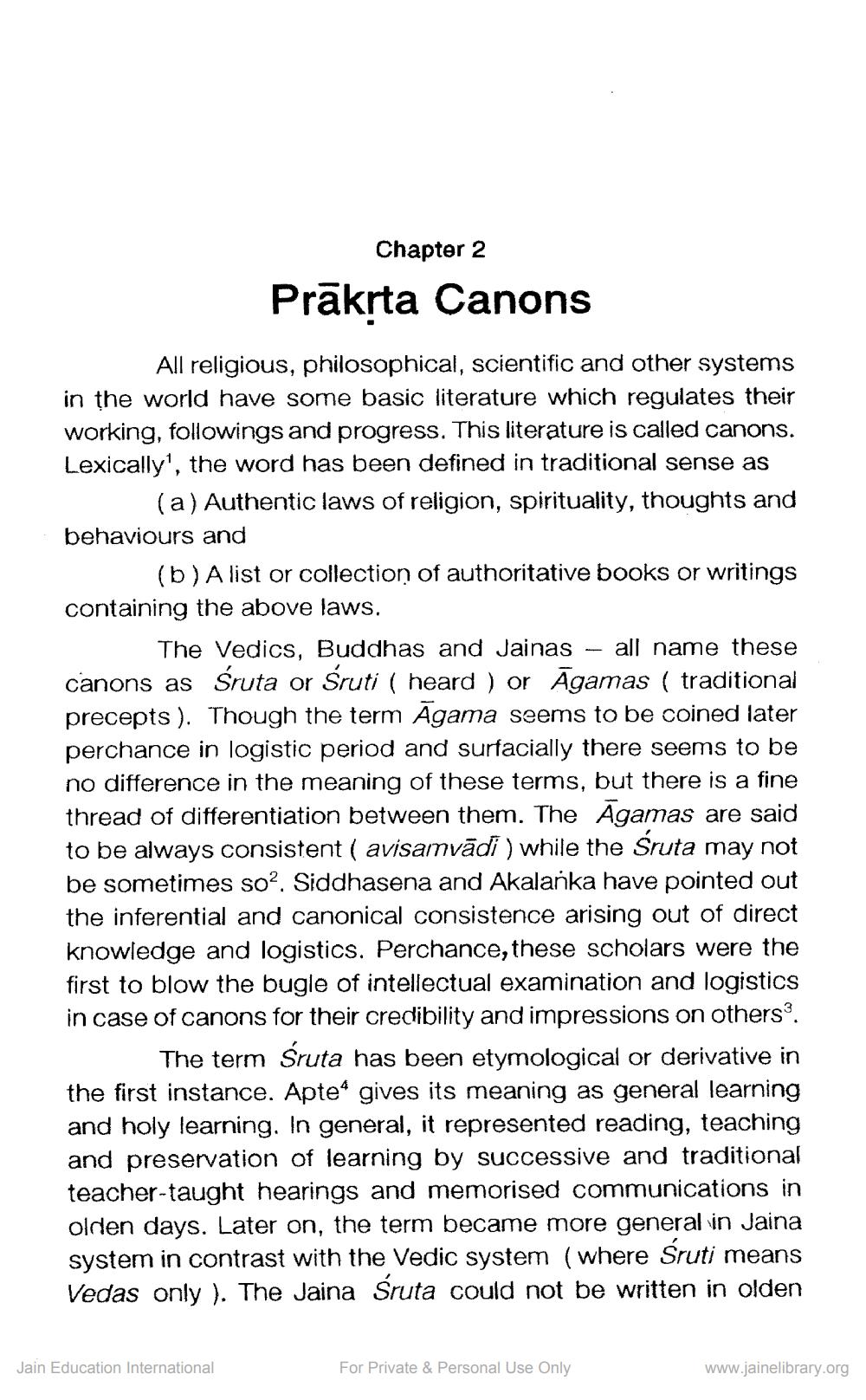________________
Chapter 2 Prākrta Canons
All religious, philosophical, scientific and other systems in the world have some basic literature which regulates their working, followings and progress. This literature is called canons. Lexically', the word has been defined in traditional sense as
(a) Authentic laws of religion, spirituality, thoughts and behaviours and
(b) Alist or collection of authoritative books or writings containing the above laws.
The Vedics, Buddhas and Jainas – all name these canons as Śruta or Śruti ( heard ) or Agamas ( traditional precepts). Though the term Agama seems to be coined later perchance in logistic period and surfacially there seems to be no difference in the meaning of these terms, but there is a fine thread of differentiation between them. The Agamas are said to be always consistent ( avisamvādi ) while the Śruta may not be sometimes so?. Siddhasena and Akalanka have pointed out the inferential and canonical consistence arising out of direct knowledge and logistics. Perchance, these scholars were the first to blow the bugle of intellectual examination and logistics in case of canons for their credibility and impressions on others'.
The term Sruta has been etymological or derivative in the first instance. Apte“ gives its meaning as general learning and holy learning. In general, it represented reading, teaching and preservation of learning by successive and traditional teacher-taught hearings and memorised communications in olden days. Later on, the term became more general in Jaina system in contrast with the Vedic system (where Sruti means Vedas only ). The Jaina Sruta could not be written in olden
Jain Education International
For Private & Personal Use Only
www.jainelibrary.org




